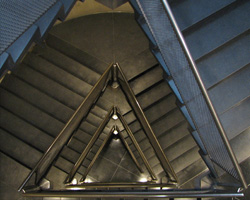When I’m discussing office rental rates, I sometimes find that tenants are confused by the term CAM. What is it, and why does it matter to you? CAM is an acronym that stands for common area maintenance. This is the amount it costs to operate and repair the common areas of a property, those areas that are shared by all tenants, such as the lobby, elevators, stairwells, parking areas, landscaping, and corridors. All building tenants use these areas, and all should pay their share of the expense to maintain these areas.
CAM is one cost that a building owner typically will pass through to tenants in their monthly rent, along with real estate taxes, property insurance, and other operating expenses. It should be addressed in your lease, and you should be paying your proportionate share of the total expense. For example, if your firm occupies 15,000 s.f. in a 100,000 s.f. building, then you would pay 15% (15,000 divided by 100,000) of the total CAM cost for the year, divided into 12 monthly payments.

How is CAM determined? The amount is estimated by your landlord at the beginning of each calendar year, and then reconciled the following year. This has to be an estimate, as the expenses are not known until they are incurred. The estimate is normally based on the last several years of cost history, with any known increases or savings factored in. After the year is over, the landlord reconciles the actual CAM payments. If they were lower than what was estimated, you will get a credit back (usually a rent credit), and if they were higher than what was estimated, you will get a bill.
CAM is one part of the overall Additional Rents, which is usually a defined term in a lease, including anything other than your base rent, that you will pay to the landlord. If you don’t take CAM and all other Additional Rents into account when you are estimating your future lease payments, or when you are negotiating a lease, you could be in for a very unpleasant surprise when you receive your first lease invoice. It’s important to know and understand all costs that you will pay as part of your rent.
CAM should be a pass-through for your landlord, not a profit center. Some elements of CAM and additional rents can be capped if negotiated up front. Some landlords will attempt to include some non-customary costs in the CAM or Additional Rents. A good tenant representation broker and a good lawyer will guide you and help you predict and negotiate your costs, protecting you from unforeseen or inappropriate items that you might otherwise agree to pay for if you are unaware.

